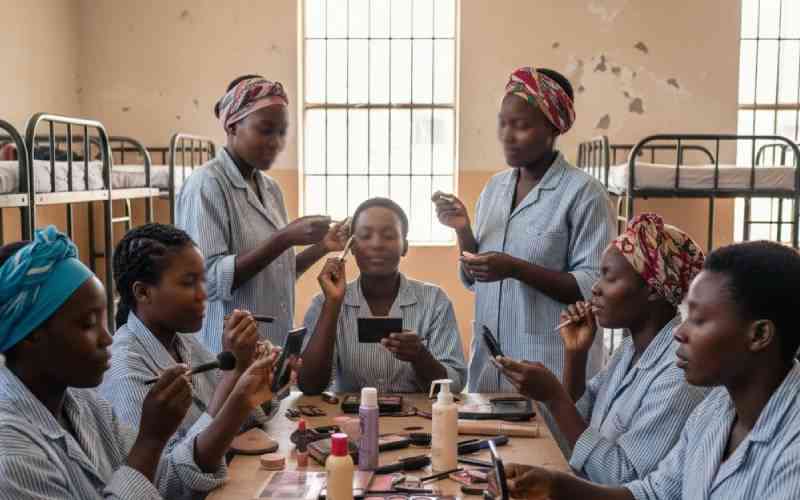
They trek for miles to make referrals, provide health education and nutrition surveillance, collect vital data and assist with immunisation, all for free.
At 73, Susan Wanjiru lives John F Kennedy's clarion call: Ask not what your country can do for you, but what you can do for your country.
At 9am, when residents of Mukogodo East in Laikipia County are going about their lives, Ms Wanjiru is on the road for her next assignment.
Wanjiru is a volunteer community health worker. Part of her job description is to know who is sick in the village, what is being done about it, and who has not been taking their medication.
For her trouble, she neither asks for a penny, government transport or a hefty allowance. The health of her community comes first.
"I have taken up their needs as my own responsibility," she said.
Wanjiru used to be a public health officer until 1995 when she and a number of colleagues were laid off.
In 2017, exactly 12 years later, she was back, not on the government payroll, but as a volunteer.
For more than 10 years now, she and a small band of volunteers have been criss-crossing far-flung and sleepy villages in Laikipia, knocking on doors in deserted homesteads to enquire whether the sick and the elderly have food, and who needs to go to hospital.
The mother of four is mostly concerned with patients suffering chronic illnesses such as cancer, diabetes or HIV and Aids, as well as those suffering from mental illness.
However, this job description shifts every day.
With the raging Covid-19 pandemic, Wanjiru and her colleagues now have a new job description clearly cut out in villages where hundreds of families depend on nearby flower farms for their livelihood.
With the flower farms facing enormous losses following the grounding of all international flights, hundreds of workers have been rendered jobless and can no longer take care of their sick and the elderly.
Jobless workers
It gets worse when the jobless workers are sick and elderly themselves or stranded in their homes for fear of the pandemic or being on the wrong side of the law for breaking government regulations to tame the spread of the virus.
Pastoral communities in the region have not been spared by the pandemic either, after livestock markets were shut down.
"It (the pandemic) has disrupted everything, especially in families with sick and elderly members. Most of them cannot afford to buy meals after they lost their jobs. Some are staying at home fearing to expose themselves to the virus," she says.
The World Health Organisation asserts that people with underlying health conditions are at more risk of contracting and succumbing to the virus. But Wanjiru will not let this happen under her watch.
Every morning, she packs maize, beans, rice, bananas and at least a container of milk in her ciondo and begins her journey around the villages.
From her past experience in public health, she instinctively knows which door to knock on. In Chumvi area in northern Laikipia, for example, up to 10 families eagerly await the volunteer health worker's visit.
Although her main task is the families' health, she knows she cannot visit them empty-handed.
"Seeing me carrying food gives them hope," she explains.
Still, the former public health officer refuses to take credit for what many would consider a 'thankless job'.
"I am not alone. I represent thousands of volunteer community health workers," she says.
She is right. For years now, the government has relied on volunteer community health workers to deliver public health services in far-flung areas.
Wanjiru just happens to be the most senior in her area, both in terms of age and experience.
However, these gallant workers' efforts largely go unappreciated, and many, like Wanjiru, end up digging into their own pockets to help the needy.
With no money to hire a boda boda everyday to navigate the rough terrain to reach the furthest villages in Laikipia North, she occasionally walks tens of kilometres everyday to do her job.
But she is not complaining.
“I am an old woman but God has given me the strength to walk. I am in good health for my age, and there are people out there who need help. This is my way of appreciating my blessings," she says.
Through these energy-draining trips, Wanjiru has cultivated trust. Opening up to someone requires trust, and she has earned it. This explains how she knows who is ill in the village, and who has not been taking medication.
"I have to keep the trust I showed them from the start,” she says.
The number of visits to any particular area is determined by the needy cases, which sometimes can be overwhelming.
"I visit them in turns. It can take a week to cover one part of Chumvi and then visit others in the following weeks,” she says.
Wanjiru and her band of volunteer community workers are gearing up for their next big assignment, if and when given the chance.
As the Covid-19 pandemic unfolds, two words have become common in Kenyan discourse: contact tracing.
They might appear new to many, but not to Wanjiru, who, together with other community health workers, have been tracing patients and their contacts for decades.
 The Standard Group Plc is a multi-media organization with investments in media
platforms spanning newspaper print
operations, television, radio broadcasting, digital and online services. The
Standard Group is recognized as a
leading multi-media house in Kenya with a key influence in matters of national
and international interest.
The Standard Group Plc is a multi-media organization with investments in media
platforms spanning newspaper print
operations, television, radio broadcasting, digital and online services. The
Standard Group is recognized as a
leading multi-media house in Kenya with a key influence in matters of national
and international interest.

